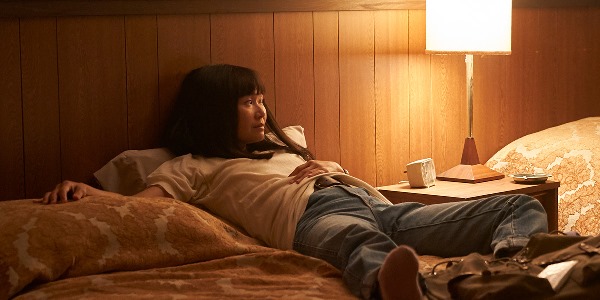Just what the film industry needs aren’t more awards. Yet this year, the Toronto International Film Festival inaugurates at least three new honors, which is not unusual for any festival to bestow, especially one of Toronto’s size. However, this does signify a determination by the annual event, known for launching films into the award season, to further shape perceptions of what’s a must-see.
For decades, TIFF has given out honors for Canadian films and an audience favorite award, but it was only in 2015 when the festival established a jury to preside over a competition in the Platform section, a sidebar of 10 art films that have, “high artistic merit that also demonstrate a strong directorial vision,” according to The Globe and Mail. (Arguably, the Platform Prize winner with the highest profile so far is Pablo Larraín’s Jackie (2016), which wasn’t a TIFF discovery; it had also won Best Screenplay at Venice, where it debuted.) Perhaps it’s too soon to tell, but the prize in no way overshadows the accolades given at the Venice Film Festival, which go back to 1932 when the world’s oldest festival first unspooled.
The new awards promote films that the Toronto programmers want the industry, and the public, to put at the top of their most-anticipated lists, as early announcements of who and what to watch for. In this way, TIFF hopes to further shape the awards conversation for the next several months.
Two of its award recipients already have to clear shelf space. Joaquin Phoenix, who has won awards at Cannes and Venice, will receive the inaugural TIFF Tribute Actor Award for starring in the origin tale of DC Comics’ Joker, which is already on filmgoers’ radars as the first comic book–based film in competition at Venice. (By the way, no Marvel Comics character has ever competed at any of the big European festivals.) TIFF is also singling out, as if she needs more attention, Meryl Streep as another TIFF Tribute Actor Award recipient for her performance in The Laundromat. Granted, these two awards honor career achievement, but the timing isn’t coincidental, given that both actors have movies in this year’s program.
It’s surprising that no Canadian film organization had previously thought of an award to be named for Toronto-born actress/film pioneer Mary Pickford. This year, French actress and filmmaker Mati Diop becomes the first recipient of the Mary Pickford Award, which “recognizes an emerging female talent who is making groundbreaking strides in the industry,” as stated in a press release. (This year is also the centenary of United Artists, the distribution/production company that Pickford co-founded.) Diop became the first black female director to have a film compete for the Palme d’Or at this year’s Cannes Film Festival, and her film, Atlantics, won the Grand Prix and will be available on Netflix.
Additionally, the renamed TIFF Ebert Director Award will go to Taika Waititi, whose new film Jojo Rabbit—purportedly a satire about a German boy, a Jewish girl hiding in the attic, and Hitler—will have its world premiere. According to the press release, “The award recognizes and honours a distinguished filmmaker for their outstanding contribution to cinema.” It’s a revision of the festival’s Roger Ebert Golden Thumb Award, which singled out a director who “reflected renowned film critic Roger Ebert’s passion for cinema.”
Speaking of Cannes, other award winners from the South of France are part of the lineup: the Palme d’Or winner, Bong Joon-ho’s Parasite; Grand Jury prize winners Bacurau and Les Misérables (directed by Kleber Mendonça Filho and Juliano Dornelles, and Ladj Ly, respectively); and Best Actor winner Antonio Banderas in Pedro Almodóvar’s Pain and Glory. Apart from the new awards, structurally the festival has seemingly stayed the same, offering roughly 120 world premieres and dozens of North American/Canadian/international debuts, and encompassing some of the best reviewed works from Berlin, Cannes, and Locarno. The lineup additionally includes around 30 films that have also screened at Venice.
Cannes favorite Ken Loach returns to TIFF with Sorry We Missed You, which is, in many ways, as strong and less predictable than his last film, I, Daniel Blake, which won the Palme D’Or in 2016. It’s remarkable how the prolific and indefatigable 83-year-old filmmaker sharply chronicles similar themes throughout his career, such as how workers try (and often fail) to get out from under the cards stacked against them, while making movies that are timely and involving. Written by his longtime collaborator Paul Laverty, Loach’s new film is both a sharp, up-to-date depiction of the gig economy as well as a convincingly volatile family drama, filmed in Newcastle upon Tyne.
Ricky Turner (Kris Hitchen), a family man in his early forties who has been unemployed since the 2008 recession, takes on a new job as a delivery man, which has wide ramifications for his entire family. His wife, Abbie (Debbie Honeywood), has to give up her car so he can buy a van, which takes him away from home for at least 12 hours a day. (Perhaps the best piece of advice he receives during his training: have an empty bottle handy in the vehicle; there is no time for bathroom breaks.)
As if an omen of things to come, he receives a parking ticket on his first day on the job. Meanwhile, Abbie, a caretaker for the elderly, has to take the bus to see her clients, extending her day. With both parents away from the home front, it falls upon their 11-year-old daughter Lisa Jane (Katie Proctor) to become the family’s caretaker, which involves waking up her older brother, Seb (Rhys Stone), in time for school. But Seb sees his dad as an example of what to expect, even if he completes his education: a dead-end job, so he cuts school, ends up in a fight, and becomes suspended.
Though Ricky and Abbie can come across as bit too saintly, and there’s at least one crowd-pleasing diatribe giving it to the Man, these quibbles go by the wayside, thanks to the suspenseful and realistic family infighting. For those who have wondered whatever happened to the eight-hour day, as does one of Abbie’s clients, this film will have special resonance.
The festival’s special presentations and galas overwhelmingly lean toward Hollywood studio films. Warner Bros. alone will bring The Goldfinch, First Mercy, Motherless Brooklyn, and what is bound to be a hot ticket, Joker. Unfortunately, Canadian films can get the short shift for attention, even in a homegrown event. It would be unfortunate if American Woman becomes lost in the shuffle.
The feature directorial debut of Toronto-based Semi Chellas (a producer and writer of Mad Men) is based on Susan Choi’s 2003 novel, a fictionalized version of one of most fascinating crime stories of the second half of the 20th century: the kidnapping and radicalization (or was it?) of Patty Hearst. The 369-page novel has its story line shortened into a fleet-footed, compact 90-minute movie that leaves you wishing it was just a bit longer. Like Choi, Chellas doesn’t take sides regarding the characters’ behavior; the camera is a neutral observer.
The heiress/fugitive has been turned into a peripheral figure in this account, here named Pauline and played by Sarah Gadon. The focus, instead, centers on Jenny Shimada, played by Hong Chau, a stand-in for the real-life Wendy Yoshimura. Chau also starred in the moving chamber piece Driveways earlier this year. With these two films, she should be recognized as having a breakout year.
A true believer, Jenny’s the messenger and intermediary between an underground radical group on the run (i.e., the Symbionese Liberation Front) and the outside world in the bucolic boonies of New York State. The tone is subdued, considering the real-life story, yet oddly compelling. Challas’s screenplay captures the off-kilter dynamics within the sought-after outlaws, which turn the otherwise solemn film into a dark comedy, similar to the details described in Jeffrey Toobin’s 2016 account of Hearst and the SLA in American Heiress. Though in a small role, Ellen Burstyn’s turn as Jenny’s cranky and perceptive employer is one reason the movie has a propulsive energy.








Leave A Comment